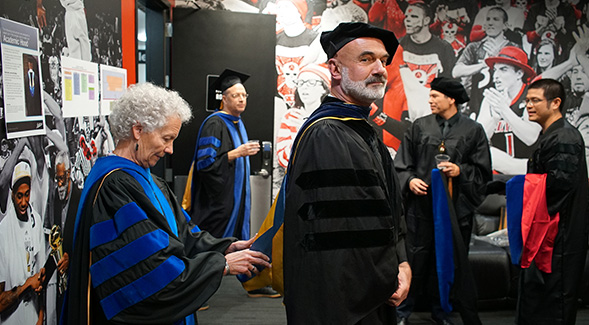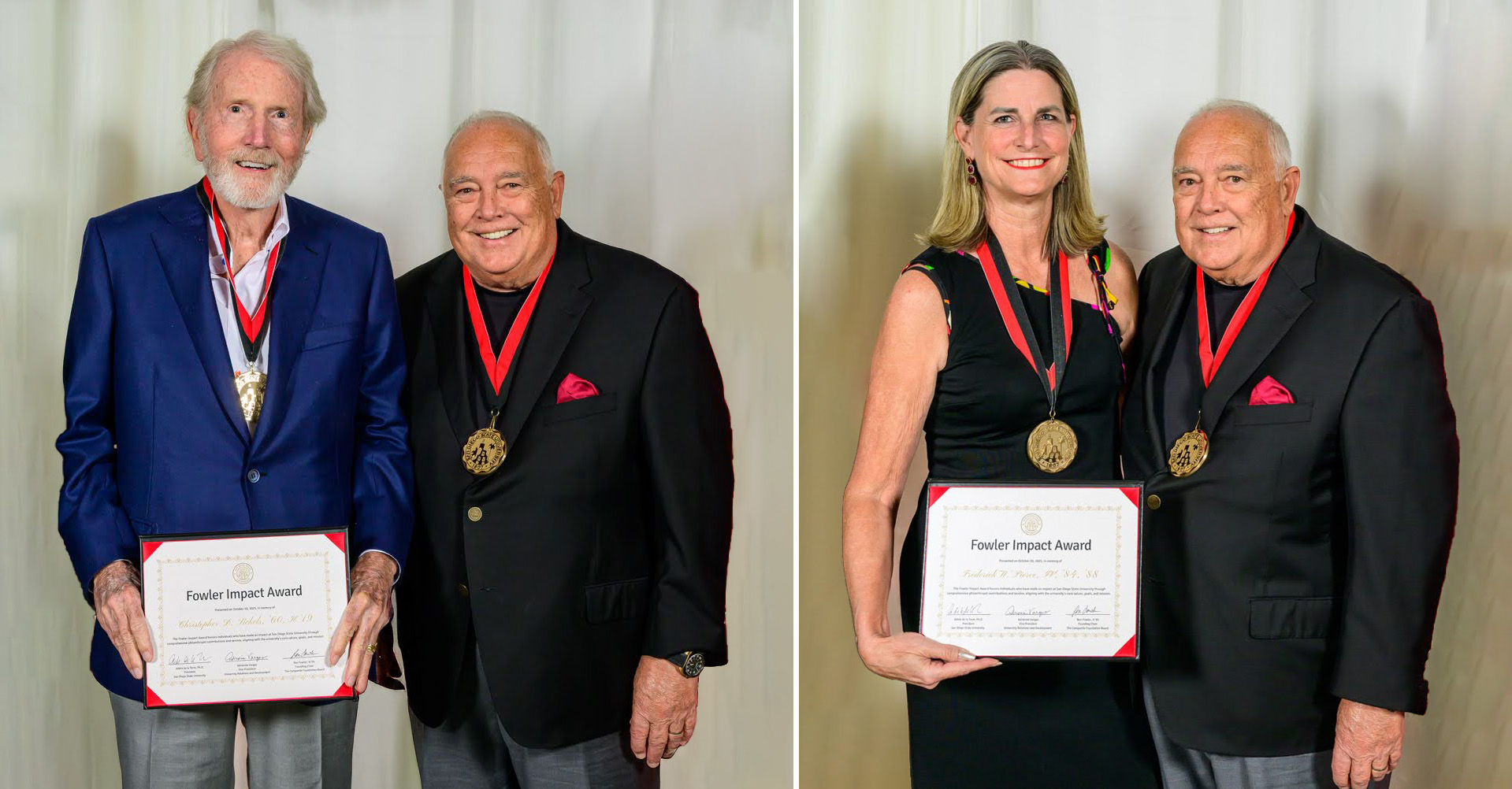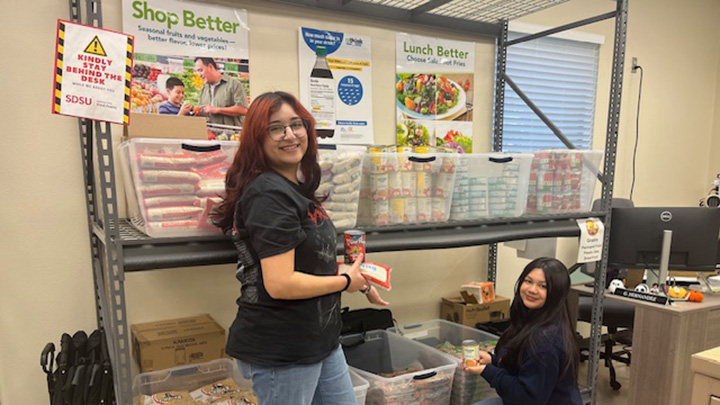Professor Battling Life-Threatening Disease Surprises His Students
Roland Wolkowicz joined the graduates he had encouraged and inspired over the years.

Despite being diagnosed with lung cancer, San Diego State University virologist Roland Wolkowicz never reduced his workload as a professor and mentor. Still, his students were expecting to graduate with him in their thoughts, but absent from Viejas Arena.
Wolkowicz, described by his students as hilarious, caring and inspirational, dressed in full regalia and surprised his students at their May 18 commencement ceremony for the College of Sciences. He proudly joined his students before the processional to support them. He gave them words of encouragement, congratulations and celebrated the occasion by posing for photos before having to leave early.
“I was extremely happy,” said Majid Salami, one of Wolkowicz’s graduating master’s students. “I remember he told us he was probably not going to show up. While I was outside waiting with the other graduates, all of a sudden, I hear Roland calling my name. I was shocked because we didn’t think he was going to be there.”
Wolkowicz had encouraged Salami to pursue a master’s degree in Biological and Medical Informatics.
“He has always been encouraging of his students,” said Salami. “He is an amazing mentor. He can always find the positive end of something that you think is so negative.”
“He lives for academia,” said Salami. “He came back because he wanted to teach his class. He surprised us at graduation. He is the reason I continued on with the master’s program. I wouldn’t be where I am right now without Roland. I couldn’t imagine not meeting him and not having him in my life.”
Wolkowicz’s Work
The Wolkowicz Lab studies RNA viruses and their interactions with their hosts. The primary pathogens under investigation are HIV-1, Dengue Virus, West Nile, and Chikungunya Virus. The lab develops analytical tools designed to study mechanisms in the virus and host to detect viral maturation and spread. They hope to find new antiviral therapies to combat the transmission of these viruses.


